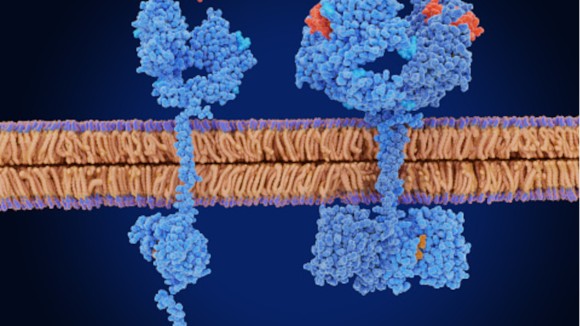 Dr. Daar investigated the molecular defects underlying common glycolytic enzyme deficiencies, and performed some of the earliest studies on nonsense- mediated mRNA decay. His postdoctoral training focused on signal transduction events and cell cycle control points influenced by oncogene function. Currently, his laboratory focuses on Eph/ephrin signaling system and its mechanistic role in cell-cell adhesion and cell movement during development. Dr. Daar has been an Editorial Board Member for Scientific Reports since April 2015.
Dr. Daar investigated the molecular defects underlying common glycolytic enzyme deficiencies, and performed some of the earliest studies on nonsense- mediated mRNA decay. His postdoctoral training focused on signal transduction events and cell cycle control points influenced by oncogene function. Currently, his laboratory focuses on Eph/ephrin signaling system and its mechanistic role in cell-cell adhesion and cell movement during development. Dr. Daar has been an Editorial Board Member for Scientific Reports since April 2015.
 Dr. Dent attended the University of Newcastle upon Tyne graduating with a B.Sc. (Hons, 1st) in Biochemistry in 1988. Since 1996 Dr. Dent has worked at Virginia Commonwealth University, in Richmond Virginia, initially in Radiation Oncology and subsequently in Biochemistry and Molecular Biology. Dr. Dent has expertise in the areas of signal transduction (receptors and pathways; inhibitors of protein kinases), apoptosis, autophagy, ER stress signaling and with radiobiology and tumor cell radiosensitization. He has published extensively in developing multiple novel drug combinations, with over ten concepts translated from the bench to the bedside in solid tumors. Dr. Dent has been an Editorial Board Member for Scientific Reports since July 2019.
Dr. Dent attended the University of Newcastle upon Tyne graduating with a B.Sc. (Hons, 1st) in Biochemistry in 1988. Since 1996 Dr. Dent has worked at Virginia Commonwealth University, in Richmond Virginia, initially in Radiation Oncology and subsequently in Biochemistry and Molecular Biology. Dr. Dent has expertise in the areas of signal transduction (receptors and pathways; inhibitors of protein kinases), apoptosis, autophagy, ER stress signaling and with radiobiology and tumor cell radiosensitization. He has published extensively in developing multiple novel drug combinations, with over ten concepts translated from the bench to the bedside in solid tumors. Dr. Dent has been an Editorial Board Member for Scientific Reports since July 2019.
 Professor. Simons is a Professor of Medicine at Yale University School of Medicine. Professor Simons is vascular molecular biologist and cardiologist with a long track record of basic, translational and clinical investigations. Professor Simons has been an Editorial Board Member for Scientific Reports since April 2015.
Professor. Simons is a Professor of Medicine at Yale University School of Medicine. Professor Simons is vascular molecular biologist and cardiologist with a long track record of basic, translational and clinical investigations. Professor Simons has been an Editorial Board Member for Scientific Reports since April 2015.

